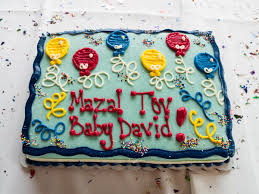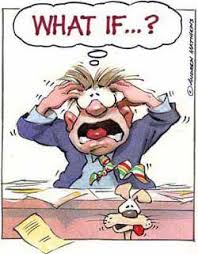What’s Your Geduld Rating?

“Have geduld” is a Yiddish expression, usually told to folks who need additional geduld. Nu, you may ask, “voss hakst do ah cheinik, why are you blabbering”? Iz azoy, it’s like this: Without geduld, even things that are possible become impossible! Your response may be, “Zog shoyn, explain it already! What’s the meaning of the word “geduld”?
Nu, have geduld, and it will become as clear as the morning sky in Hawaii. The meaning of geduld is patience, and you have shown great geduld by following this little monologue.
Anyway, some folks have a tremendous amount of geduld, while others have as much gedul as a mahlpeh (monkey) in captivity. With geduld, you can drive all the way to California. Without geduld, driving to a nearby store is a problem.











